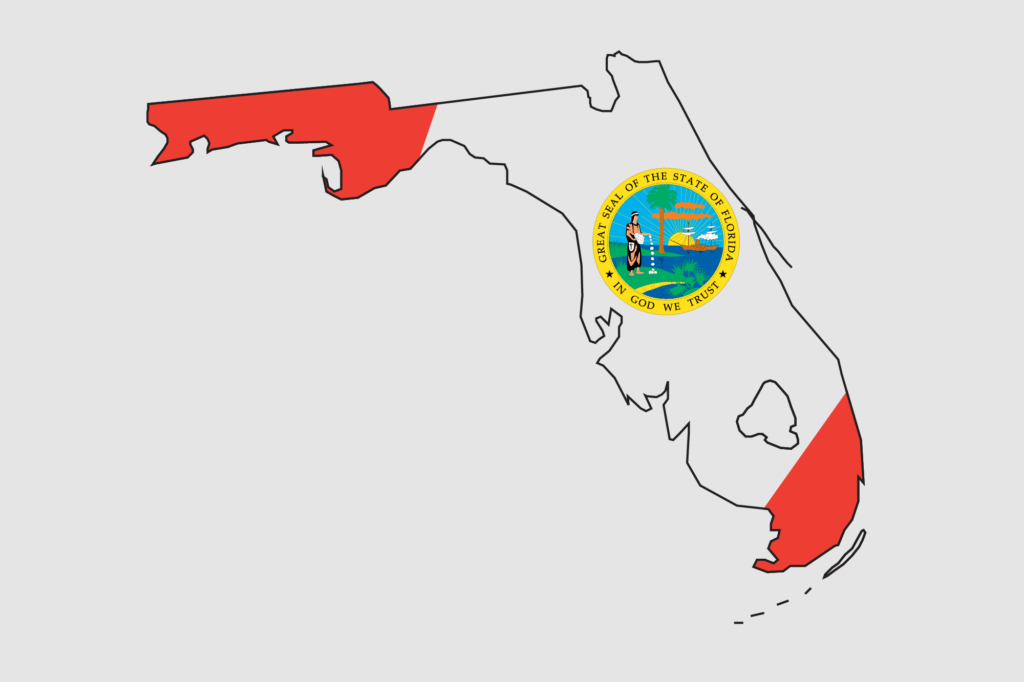

If you do not have proof of ownership (a title) for your motor vehicle, motorhome, mobile home, motorcycle or other titled property, you can provide the State of Florida with a Certificate of Title Bond in order to replace your lost, stolen, damaged or defective title. You will be able to register your vehicle with this new title. Florida does not accept Certificate of Title bonds for boats or other water going vessels.
Don’t overpay, apply today and get your title bond in 3 simple steps. Have questions? Contact us and talk to a title bond expert today.
Florida statute 319.23 requires residents who never received or have lost their vehicle title to purchase a surety bond prior to obtaining their duplicate title. The Florida legislature enacted the bonding requirement to ensure that the rightful vehicle owner will receive compensation if the title applicant does not actually own the vehicle. The bond amount must be equal to twice the vehicle’s Kelly Blue Book value and will expire three years from its effective date.
The Division of Motorist Services stipulates that a vehicle eligible for a bonded title must have been sold in a private sale and must be an automobile, a truck weighing less than 8,000 pounds, or a motorcycle. The vehicle must also be between 10 and 25 years old. Vehicles with security interests, liens, or encumbrances are ineligible for a bonded title.
Florida does not issue bonded titles for vessels, mobile homes, recreational vehicles, or off-highway vehicles. If you require a title for these purchases, refer to Form 82040.
Please note a Florida certificate of title bond is required if you have insufficient vehicle ownership. If you’re planning to sell vehicles, a separate Florida motor vehicle dealer bond is required.
Florida certificate of title bond costs start at $100. The exact cost will vary depending on the surety bond amount required by the Florida Department of Highway Safety and Motor Vehicles.
The Florida Lost Title Bond costs either $100 or 1.5% of the bond amount, whichever is greater (rates may vary for bonds greater than $25,000). The bond should be equal to twice the appraised value of the vehicle established by the Kelley Blue Book valuation guide. If you need help determining your surety bond amount, contact the Department of Highway Safety and Motor Vehicles.
You can purchase Florida title bonds online 24/7. You must provide the following information for the Department of Highway Safety and Motor Vehicles approval.
Once your payment has been processed, your surety bond documentation will be issued. You’ll receive your official surety bond by email.
The Florida Department of Highway Safety and Motor Vehicles enforces registration requirements for vehicles with lost, stolen, or missing titles.
The Florida title bond protects prior owners and/or lienholders as well as future vehicle buyers in the event the original vehicle title is found.
Florida requires residents to purchase a surety bond as part of the application process to obtain a duplicate title. The bond ensures that the rightful vehicle owner will not suffer a financial loss if the title applicant is seeking to obtain the title fraudulently. If the title applicant is engaging in fraud, then the rightful vehicle owner can file a claim against the bond and receive compensation up to the full amount of the bond. In short, the bond acts as a safeguard against people attempting to obtain ownership of a vehicle through unethical means.
The Florida Department of Highway Safety and Motor Vehicles will require a title applicant to purchase a surety bond if the applicant cannot present the department with a certificate of title that assigns the prior owner’s interest in the motor vehicle. Typically, lost title bonds are required for the following reasons:
We do not conduct a credit check for bonds that are less than $25,000. At limits over $25,000, we will review your standing to determine the qualification and rates for the bond.
If the Florida Department of Highway Safety and Motor Vehicles requires your vehicle title bond documentation to be updated for any reason, contact your surety provider.
The most common changes for these bonds include:
Lost title bonds in Florida expire 3 years from the effective date and do not renew.
To get a bonded title in Florida, complete the following steps.
In Florida, bonded title applicants should submit the completed bond form, including the power of attorney, to their local tax collector’s office. The Florida Lost Title Surety Bond requires signatures from both the surety company that issues the bond and the bonded title applicant. The surety company should include the following information on the bond form:
Florida requires all motor vehicle owners to purchase auto insurance with the following minimum limits:
Bonded title applicants must purchase and maintain a surety bond in an amount equal to twice the vehicle’s Kelly Blue Book value.
To avoid claims against their bond, bonded title applicants in Florida must ensure that they are the rightful owners of the motor vehicle.

Get the best rates for your lost, stolen, or damaged title bond today. Title bonds available for cars, trucks, trailers, aircraft, and more.